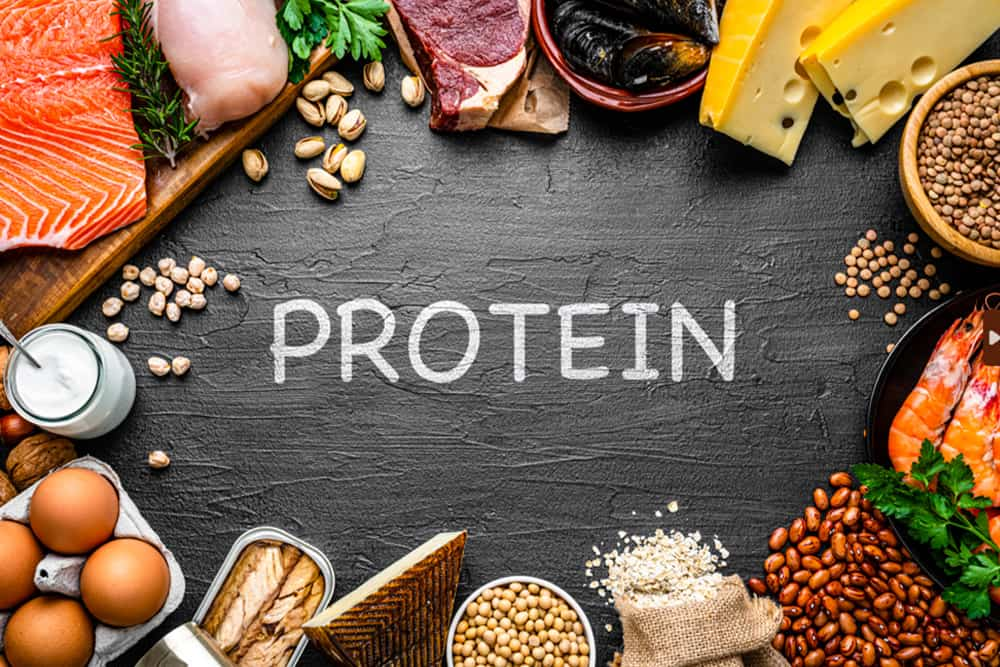As a doctor, I get a lot of questions about how much protein we actually need. There is so much information available to us that finding the “right” answer can be hard. Protein is an important part of a well-balanced diet. However, getting the correct amount is just as essential as getting the correct kind of protein.
Why Is Protein Important?
Protein is basically a building block for almost every process in our bodies. When we talk about diet, protein helps us feel satisfied (full) after a meal or snack. It burns slower than fats or carbohydrates, and this keeps us satisfied until our next meal. Not getting enough protein can lead to conditions like malnutrition or kwashiorkor (protein deficiency). However, too much protein can cause problems like acidosis or kidney disease. This is because protein is harder for our bodies to process.
How Much Protein Do We Need?
The standard recommendation for protein intake is 0.8 grams of protein per kilogram (kg) of body weight per day.
A person who weighs 70 kg (150 pounds) would calculate their protein intake as follows:
70 x 0.8 = 56 grams of protein per day
There are a few situations when you would need more than this, but not many. Additional protein is recommended for women who are pregnant or breastfeeding, burn victims or patients who have had bariatric surgery. But even in those situations we only boost protein intake to about 1.2 grams of protein per kg of body weight per day.
We do try to calculate protein intake based on a more ideal body weight. If you are overweight or obese and your calculation comes back much higher than 100 grams per day, be sure to talk to your doctor before you adjust your intake.
Where Should We Get Protein From?
Plants! Did you know that one-half cup of lentils has more protein than an egg? Plus, they are packed with fiber and there is no cholesterol in them! When you think about food, you want to eat nutritionally dense foods. Getting the biggest nutrient burst from what you eat should be the goal.
Unprocessed whole plant proteins have plenty of protein, and also come with fiber as well as vitamins and minerals while not having a lot of saturated fat or cholesterol in them. For example, one-half cup of lentils has protein, fiber, iron, calcium and unsaturated fat. Compare that to an egg which has a lesser amount of protein, no fiber, and contains both saturated fat and high amounts of cholesterol. This is a common theme when comparing animal protein to plant protein. As you are picking foods to nourish yourself, remember to pick foods that are going to give you the most benefit. You want foods that are high in protein, high in fiber and low in sugar.
Studies also show that high amounts of animal protein intake make the kidneys work harder to filter the blood. Over time this causes damage to the kidneys. Interestingly, plant proteins don’t have the same effect. It appears the stress on the kidney is related to the high amounts of inflammatory mediators in animal protein and how animal protein triggers increased inflammation in the body. When the same amount of protein is given from unprocessed plant sources, you don’t see the increased strain on the kidney.
Another question often asked is if meat alternative foods are okay. While these are highly processed and sometimes have added oils and salt, the studies don’t show as much strain on the kidney when compared to animal products. That being said, our dietary goal should be to eat WHOLE food and keep the processed foods to a minimum. While meat alternatives are great transition foods, please think of them as exactly that – a transition from a meat-heavy diet to a plant-based diet. As eating more plant-based, whole foods becomes easier, you can reduce more processed foods from your diet.
What Foods Are High in Protein?
Here are examples of plant foods that contain the highest protein:
| Protein Content (grams) | Serving Size | |
| Pumpkin seeds | 8 | One-third (1/3) cup |
| Lentils | 18 | 1 cup cooked |
| Edamame | 9 | One-half (1/2) cup |
| Tofu | 12 | 4 oz |
| Seitan | 21 | One-fourth (1/4) cup |
| Pinto beans | 12 | 1 cup cooked |
| Kidney beans | 14 | 1 cup cooked |
| Peas | 8 | 1 cup |
| Chickpeas/garbanzo beans | 12 | 1 cup |
| Peanuts | 8 | 1 oz |
| Hemp seeds | 10 | 3 Tbsp |
| Nutritional yeast | 6 | 1 Tbsp |
| Quinoa | 8 | 1 cup cooked |
| Oat groats | 10 | 1 cup cooked |
| Wheat berries | 9 | One-half (1/2) cup cooked |
The take home message is make sure you eat enough protein for you, but be careful to not overdo it. And eat more plants!

Dr. Crista Few
Family Physician, Bryan Primary Care








